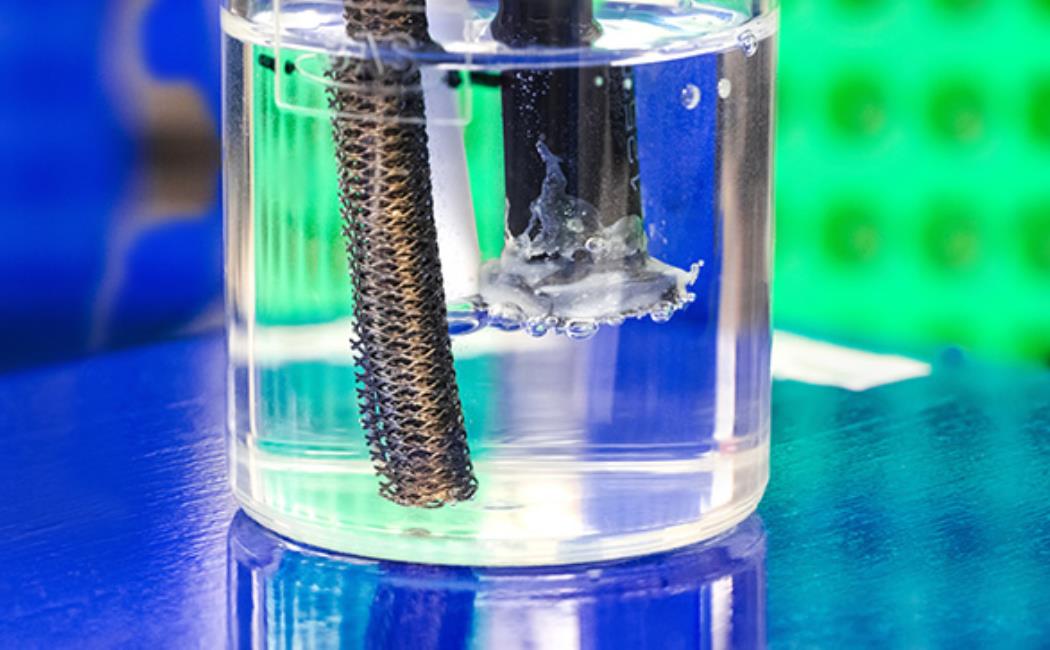
Bacterial route to cleaner catalysis
16 March, 2023
A biological method that produces metal nanoclusters using the electroactive bacterium Geobacter sulfurreducens could provide a cheap and sustainable solution to high-performance catalyst synthesis for various applications such as water splitting.
Metal nanoclusters contain fewer than one hundred atoms and are much smaller than nanoparticles. They have unique electronic properties but also feature numerous active sites available for catalysis on their surface. There are several synthetic methods for making metal nanoclusters, but most require multiple steps involving toxic substances and harsh temperature and pressure conditions.
Click here to read the full story.
Image: Using bacteria to produce metal nanoclusters could be a greener and more efficient way to produce precious catalysts used in industry.
© 2023 KAUST; Anastasia Serin.